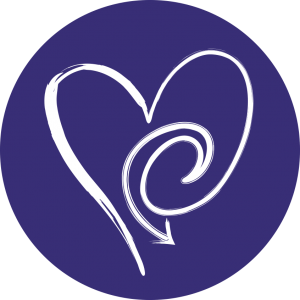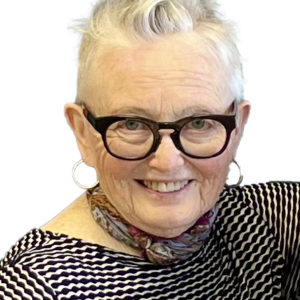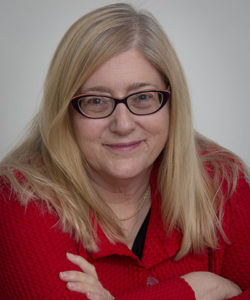Roe v Wade – The Voices Project
The Supreme Court handed down Dobbs v. Jackson in June 2022, reversing the 1975 Roe v. Wade decision that established abortion as a constitutional right. When women say, We will not go back to back-alley abortions, that raises the question: What was it like back then, before Roe? And what are the parallels with today, post-Dobbs?
Less than a month after the Dobbs decision, two women announced plans for a play called Voices from the Silenced to be based on older women’s memories of illegal abortions before Roe. Seasoned theater professionals Martha Boesing and Victoria Rue had recently moved to Rossmoor, a senior community in Walnut Creek, California. With 9000 residents on 2000 acres, Rossmoor hosts over two hundred clubs including an active theater community. Boesing and Rue invited the women of Rossmoor to submit their stories as the basis for the play. As Rue said, these recollections have “incredible parallels” to the challenges younger women face in post-Dobbs America.
After the writing came the auditions. I live several miles from Rossmoor and found out about Voices from the Silenced from a friend there, a theater person I’ve known for years. She called to say, “Martha Boesing is at Rossmore and she’s directing a piece. You should come over and try out.” Boesing is legendary in the feminist theater world and I decided to audition without knowing what the play was about. I had recently had several losses in my life, of pets and people I loved, so the timing was good. I got the part.
When I found out the subject of the play, I was ready to go. How absolutely brilliant to be able to inhabit these women’s stories and do justice to them. And the process was just as profound for the women who wrote their stories and saw them performed. There was such pride in that, and such freedom: the freedom to have their experiences named and their difficult decisions validated.
My background is in drama therapy, and this project was very much a drama therapy play. When we speak the personal it becomes universal. This is the seed of empathy: to be able to hear another’s story and understand it, to feel it for ourselves, to grasp the humanity of another’s experience. We realize that others have experienced what we experienced and that we are not alone in our experience. As an actor, it is so validating to share another’s story and feel the audience respond with: I know this place. That is how art saves lives.
There is often a lot of ego in theater productions, but not in the Voices project. Here, the women were incredibly professional and supportive. We quickly became an ensemble. There was such a relationship of mutual respect. To be in a room with seasoned actors, bringing a lifetime to the process, was such a complete honor and such a gift.
All told, there were nine actors in the play, and of those, seven live at Rossmoor. We each played multiple roles; I acted half a dozen stories. At one point the actors had a chance to meet with the women whose stories we portrayed. The play itself reached across generations: the actors were in their sixties, seventies and eighties, portraying women who are now in their eighties and nineties. It is so valuable to preserve this history; some of these women had never talked about their abortions to anyone.
When we performed the play, there were also women in the Rossmoor audience who had never talked about their abortions. And some of the men in the audience said afterwards, “I had no idea.” To which my reaction was, “Really?” But these men didn’t have to deal with back-alley abortions. How many guys walked away when a woman announced she was pregnant? The attitude was, “Your body, your problem.” Whereas for women, the specter of pregnancy was always there. We were always looking over our shoulders before Roe, always wondering when our period was late.
The Voices Project – Documentary.
After we performed the play, the directors and one of our producers expanded the project to make Voices a documentary. They envisioned the possibility of reaching a wider audience and they recognized the urgency of having it be seen at this time. They hold fast to that vision.
My therapist, who is in her eighties, told me that in her youth, no woman she knew would even say the word “abortion.” Shame is such a huge part of the stories in Voices, and there is often shame in abortion. However, it was different then because the roles of males and females were so much more defined, and the roles women played were so much more constrained. Our culture has changed and sexuality is much freer. However, for women from conservative families, shame is still powerful: shame about getting pregnant and shame about abortion.
Yet women have always had abortions, and the amount of freedom a woman has is based on how much control she has over her body. So much was happening before Roe. Women were learning to perform abortions and were teaching each other how to make a homemade cannula, how to perform the procedure. And women will always have abortions; the question is how safe they will be. Abortion is a difficult decision, but after Roe, young women no longer had the fear of abortion that was ever-present in the pre-Roe days and that we see in the documentary.
In some ways, our post-Dobbs era differs from the time before Roe. We’ve lived through half a century when abortion was a guaranteed right and now that guarantee is gone. It is a different situation when society takes away a right. The women whose stories are in Voices did not have the expectation that abortion was a right.
It is astounding we are now in such a different time. Just as in the pre-Roe era, women of means can travel to places where abortion is legal. But for many who lack resources, the post-Dobbs era is just as tragic as pre-Roe times. Consider young girls who are raped, women who have an ectopic pregnancy, women who know that their baby is not viable; women who give birth and have to watch their baby die. This is cruelty.
What connects young women now with young women before Roe is the reality of pregnancy and the question: Where can I find an abortion? How safe will it be? Then as now, abortions are difficult to access for women who are poor, for women of color, for women who are otherwise marginalized, unless they live in certain places.
In some ways it is worse now than before Roe. The loss of privacy we experience with electronics, whether locator apps or period trackers, is frightening. Yet in other ways, such as the availability of abortion pills, this era is easier.
All this is food for thought, food for discussion, when Voices of the Silenced launches as a documentary. The trailer is out now, and even that brief excerpt is powerful.
The Voices project is about compassion, and it is also about rage: Rage that women have lost autonomy, lost a measure of control over our bodies, fifty years after abortion was declared a constitutional right. The Voices from the Silenced project challenges us to remember the women we lost to back alley abortions, and the women whose voices were silenced by shame for decades. We will not go back. And our art will save lives.



4 Responses
I would love to see the documentary when it comes out. I am also involved with a group of churches in my area who are working on Reproductive Justice Issues, and I can imagine showing this film to raise consciousness.
Hello Ivy — Yes I can’t wait for the documentary. Will let folks know when I have an update on the release. And yay you for the great social justice work you’re doing!
I was fortunate to see this production at Rossmoor and was blown away at how powerful the voices and stories of those in the play.
If you have the chance, please don’t miss seeing this. It’s amazingly powerful and touching!
So glad you got to see the play, Rose! I can’t wait for the launch of the full documentary. And I’m hoping the project will publish a script of “Voices of the Silenced,” so that other groups can produce the play. I’d love to see a production with young women playing the roles — this has become such an intergenerational issue!